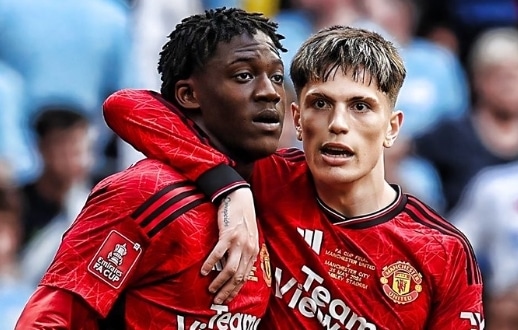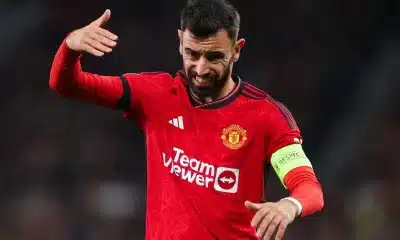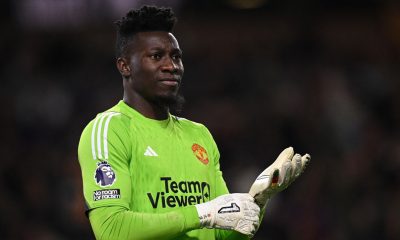Sports
Manchester United’s Chance Of Playing In Europa League Under Threat (See Why)

Manchester United‘s qualification for the next season’s Europa League, secured after defeating Manchester City in the FA Cup final, is now under threat due to UEFA’s multi-club ownership regulations.
This issue stems from the shared ownership both Manchester United and French club Nice, have under Sir Jim Ratcliffe’s INEOS.
UEFA’s stringent rules prohibit two clubs under the same ownership from competing in the same European competition.
INEOS fully owns Nice and holds a significant stake in Manchester United, which is set to increase, potentially violating these regulations.
Sir Jim Ratcliffe’s company acquired a 27% stake in Manchester United and announced plans last Christmas to increase this investment, which could see INEOS owning more than 30% of the club.
The situation is complicated by the fact that both clubs, Manchester United and Nice, have qualified for the Europa League.
Nice secured a fifth-place finish in Ligue 1, and Manchester United claimed a spot through their FA Cup victory.
Under UEFA’s rules, if the ownership issue is not resolved, one club may have to step down to the UEFA Conference League.
Given Nice’s direct qualification through their league performance and Manchester United’s entry through a domestic cup win, the French club would likely retain its Europa League spot.
If a resolution is not found, Manchester United would be relegated to the Conference League.
This is not an isolated issue within European football.
The City Football Group, which owns Manchester City, faced a similar predicament with its ownership of Girona.
UEFA recently required the group to reduce its stake in Girona to comply with the regulations, enabling the Spanish club to participate in next season’s Champions League.
The UEFA Club Financial Control Body has tightened these multi-club ownership rules to prevent owners from exerting any form of “decisive influence” over multiple clubs in the same European competitions.
Clubs with shared ownership stakes are now under greater scrutiny to ensure their compliance with these updated regulations and their participation in UEFA tournaments.












